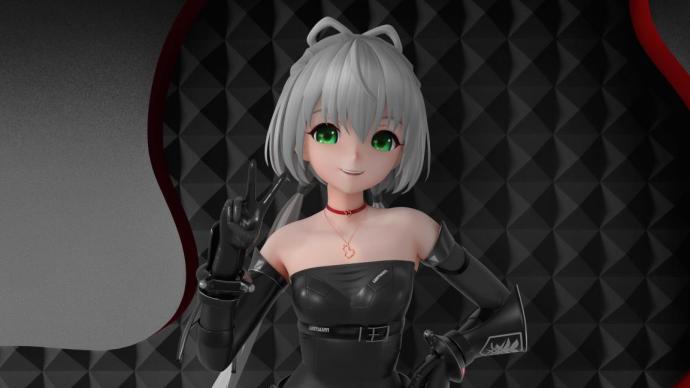
With the accelerated rise of the digital economy, concepts such as virtual artists and virtual anchors continue to appear in front of the public. For example, the virtual idol girl group A-SOUL launched by Lehua Entertainment directly used "Never Collapse" as its debut declaration, and the brand itself began to create an image for itself - Hong Kong's Nestle Coffee created a virtual idol Zoe for itself Attempt to pry open the traffic password.
As the images of virtual idols become more and more full and three-dimensional, these idols who only stay in the digital world also begin to approach the various functions of real idols – not only do they release records, sing and dance on stage, but even endorse various products like celebrities. . The recent wave of virtual idols' endorsement craze has also blown into the jewelry industry. While this move is eye-catching, some people in the industry have also raised questions about whether the digital interpretation of virtual idols can really make consumers pay for it?
In June of this year, Qeelin, a jewelry brand known for its traditional Chinese cultural elements, released a very special jewelry collection: the Wulu 18 series to celebrate the brand's 18th anniversary. In order to celebrate this special "adult ceremony" and get closer to the younger generation of consumers, Qeelin invited a group of young idols to perform this new product. The most special of them is the cooperation with the virtual singer Luo Tianyi. In the "fashion blockbuster" released by the brand, the silver-haired Luo Tianyi is wearing a futuristic black tight-fitting skirt and a new Wulu 18 series necklace around her neck. The outline of the treasure gourd and the three-dimensional geometric pattern are very eye-catching.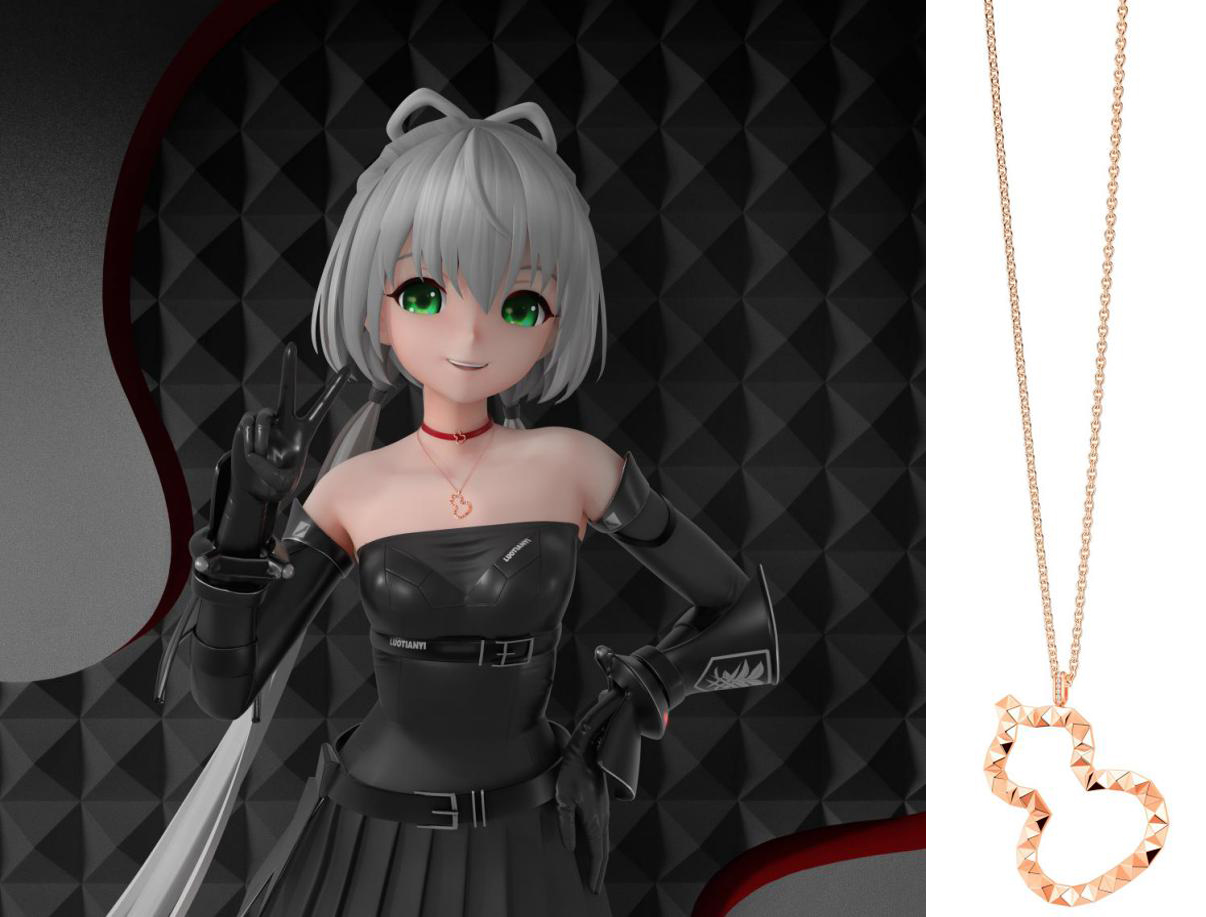
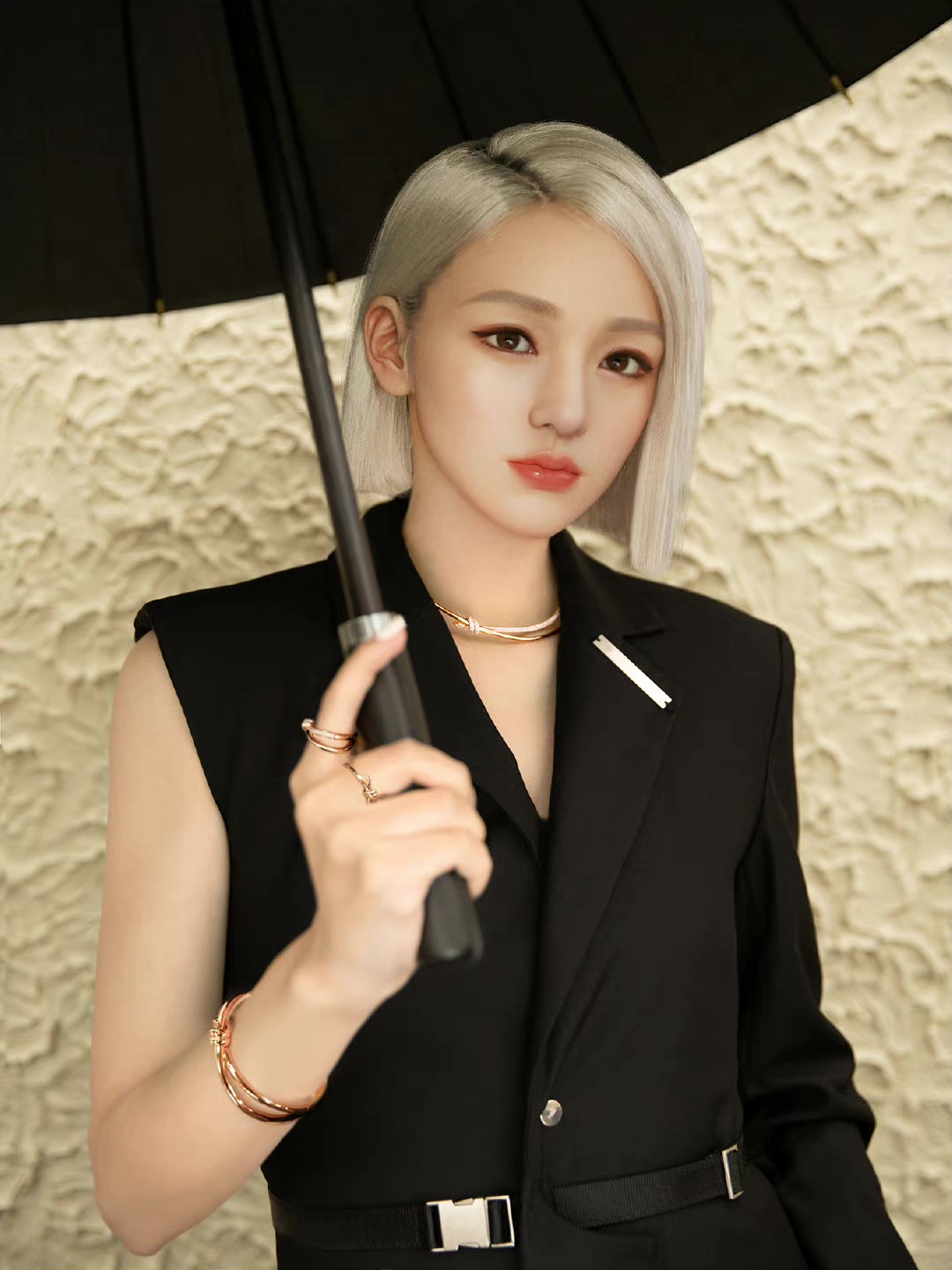
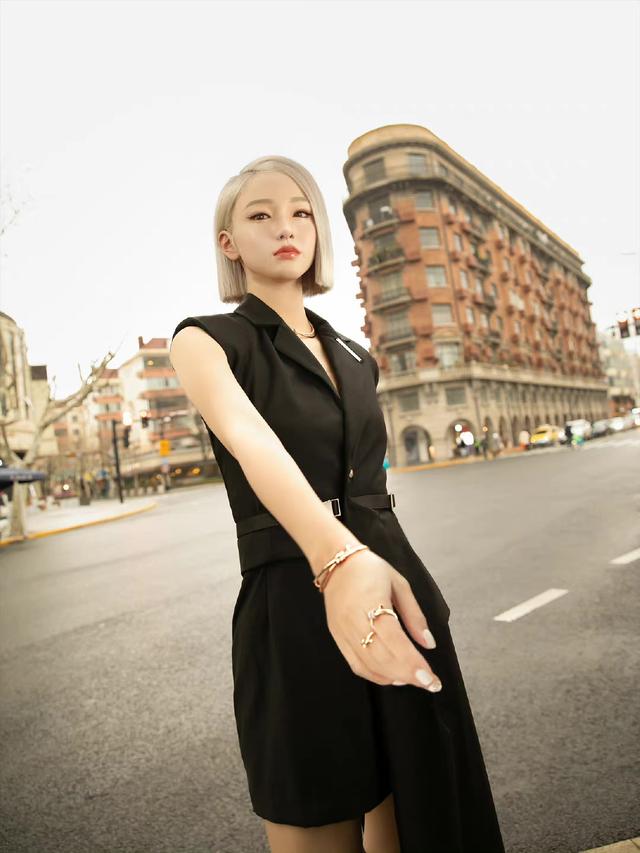
At the same time, jewelry brands are also accelerating their own virtual idol creation process. IDo Jewelry has always been one of the major jewelry brands in China that is very good at marketing with stories, feelings and emotions. IDo teamed up with the independent band Wujoren and actor Ma Sichun to release the single MV "I Do". Surprisingly, Beco, a virtual idol created by the IDo brand, also appeared in this MV, which aroused heated discussions among netizens.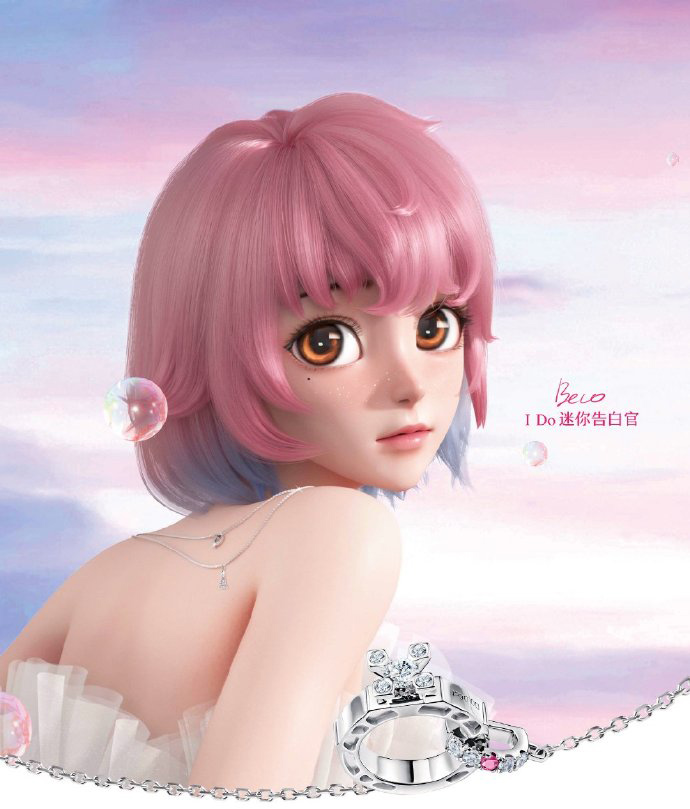
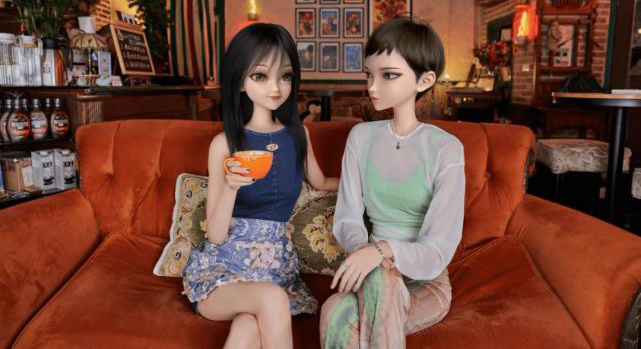
For the public, "virtual idols" not only conform to popular aesthetic concepts in appearance, but also convey values and life attitudes in line with the younger generation through their works, which can quickly capture the hearts of young netizens. But conversely, it is precisely because of the virtuality that it will bring people many unreal feelings. For example, if the virtual image uses a certain brand of cosmetics, people cannot see the effect of applying it on the real face; or taste a certain food , virtual images cannot have real perception, so they are often powerless to bring goods, unable to arouse people's empathy, and their persuasiveness will be greatly reduced for consumers.
For virtual idols, "idol narrative" is also an indispensable part. It can make the characters of virtual idols richer and more vivid, and at the same time shorten the distance between idols and fans, so that "virtual idols" can "create dreams" for fans ". However, there are many virtual anchors and spokespersons on the market today, but most of them do not have much memory. Brand owners are eager to make them into brand features, and in this process, the "idol narrative" is often missing. Therefore, for the younger generation of consumers, virtual idols are more of a bright spot that attracts attention, but it is difficult to have a real resonance with these virtual characters.
However, with the development of AI technology and the improvement of digital human functions, it is believed that the blank of "idol narrative" will be enriched under the operation of some virtual idol teams. Maybe at that time, the jewelry and costumes worn by these virtual idols will really become a hot item for young people to "plant grass".
As the images of virtual idols become more and more full and three-dimensional, these idols who only stay in the digital world also begin to approach the various functions of real idols – not only do they release records, sing and dance on stage, but even endorse various products like celebrities. . The recent wave of virtual idols' endorsement craze has also blown into the jewelry industry. While this move is eye-catching, some people in the industry have also raised questions about whether the digital interpretation of virtual idols can really make consumers pay for it?
In June of this year, Qeelin, a jewelry brand known for its traditional Chinese cultural elements, released a very special jewelry collection: the Wulu 18 series to celebrate the brand's 18th anniversary. In order to celebrate this special "adult ceremony" and get closer to the younger generation of consumers, Qeelin invited a group of young idols to perform this new product. The most special of them is the cooperation with the virtual singer Luo Tianyi. In the "fashion blockbuster" released by the brand, the silver-haired Luo Tianyi is wearing a futuristic black tight-fitting skirt and a new Wulu 18 series necklace around her neck. The outline of the treasure gourd and the three-dimensional geometric pattern are very eye-catching.

The virtual idol Luo Tianyi wears the Wulu 18 series necklace.
In fact, Luo Tianyi is not the first virtual idol to set foot in the jewelry industry. As early as the end of February this year, the self-proclaimed "fashion blogger" virtual idol AYAYI released a promotion content for Tiffany Knot series products on "personal" social media such as Weibo and Xiaohongshu. AYAYI was dressed in black, holding a black umbrella, wearing a Knot series of diamond-encrusted gold necklaces, bracelets and rings, and took pictures in front of Shanghai Wukang Building.

Virtual fashion blogger AYAYI wears Tiffany KNOT jewelry.
On social media, AYAYI has created a "fashion blogger" and currently has more than 600,000 followers on Weibo and Xiaohongshu. Only in the month of the "blowout" cooperation, the brands and institutions that cooperated with AYAYI included MAC, L'Oreal, Tmall, Tiffany, etc., as well as "Excellent WSJ Chinese Edition" and "Bazaar" published in fashion publications. The vane of the trend of the younger generation. In fact, Tiffany chose AYAYI to interpret the Tiffany Knot series. This new jewelry series is inspired by the wire knots on the construction site. The sharp edges and corners reveal the wearer's unruly style. An olive branch thrown by the younger generation of consumers.At the same time, jewelry brands are also accelerating their own virtual idol creation process. IDo Jewelry has always been one of the major jewelry brands in China that is very good at marketing with stories, feelings and emotions. IDo teamed up with the independent band Wujoren and actor Ma Sichun to release the single MV "I Do". Surprisingly, Beco, a virtual idol created by the IDo brand, also appeared in this MV, which aroused heated discussions among netizens.

Beco, a virtual idol created by the IDo brand, appears in brand promotion wearing jewelry.
In the second half of the song's MV, Beco relied on a pink-blue gradient short hair, delicate facial features, a beautiful face, a youthful and lovely white short skirt, a sweet voice and a character image decorated with IDo's jewelry. Got a lot of 2D fans. In one of the popular comments, some netizens said, "regardless of whether it is an individual or a manufacturer, this aesthetic is understood." At the same time, this kind of cross-dimensional operation of virtual idols has shortened the distance between the brand and young people in a more novel and interesting way, and expanded the unique influence of the brand among the Z generation crowd.
Virtual fashionistas Sam Shanshan and Liz Chestnut wear Bo Ji jewelry.
Even fashion media have begun to create their own virtual idols. The virtual fashionistas Sam Shanshan and Liz Lizi created by the SuperELLE platform are different-dimensional idols with over 10 million fans. They are committed to showing the trendy lifestyles that young people like today and sharing their fashion concepts. Recently, these two virtual fashionistas collaborated with Bao Ji Jewelry, wearing new jewelry, and "shooting" a blockbuster with the fashion style in "Friends".For the public, "virtual idols" not only conform to popular aesthetic concepts in appearance, but also convey values and life attitudes in line with the younger generation through their works, which can quickly capture the hearts of young netizens. But conversely, it is precisely because of the virtuality that it will bring people many unreal feelings. For example, if the virtual image uses a certain brand of cosmetics, people cannot see the effect of applying it on the real face; or taste a certain food , virtual images cannot have real perception, so they are often powerless to bring goods, unable to arouse people's empathy, and their persuasiveness will be greatly reduced for consumers.
For virtual idols, "idol narrative" is also an indispensable part. It can make the characters of virtual idols richer and more vivid, and at the same time shorten the distance between idols and fans, so that "virtual idols" can "create dreams" for fans ". However, there are many virtual anchors and spokespersons on the market today, but most of them do not have much memory. Brand owners are eager to make them into brand features, and in this process, the "idol narrative" is often missing. Therefore, for the younger generation of consumers, virtual idols are more of a bright spot that attracts attention, but it is difficult to have a real resonance with these virtual characters.
However, with the development of AI technology and the improvement of digital human functions, it is believed that the blank of "idol narrative" will be enriched under the operation of some virtual idol teams. Maybe at that time, the jewelry and costumes worn by these virtual idols will really become a hot item for young people to "plant grass".
Related Posts